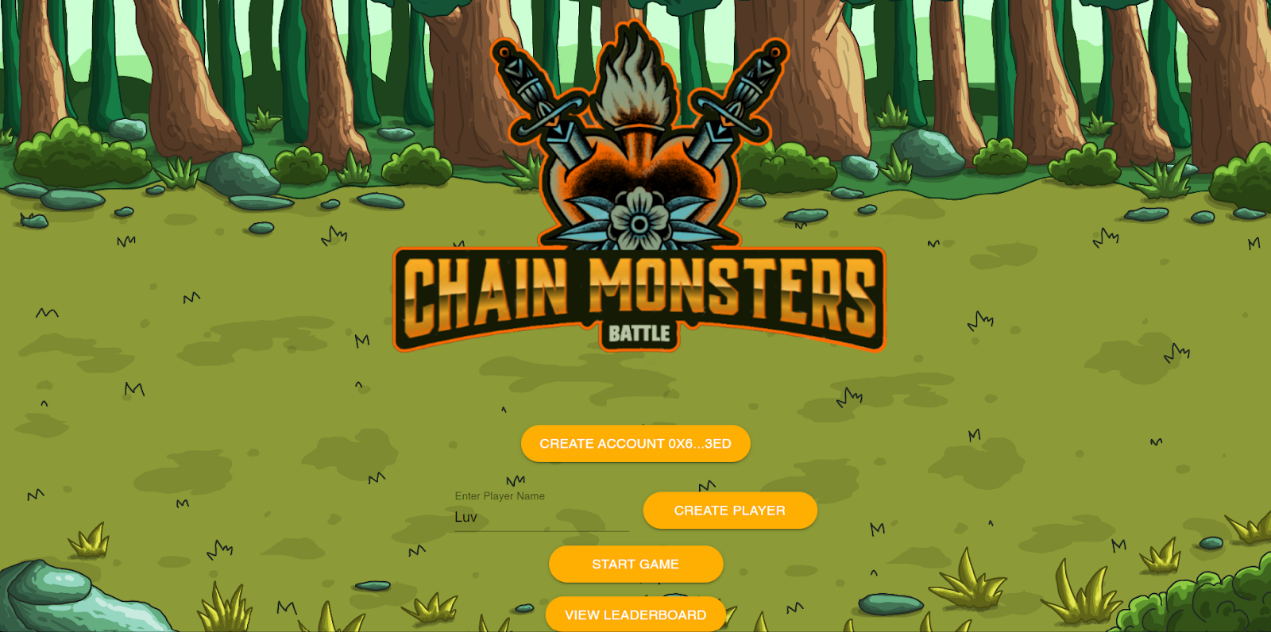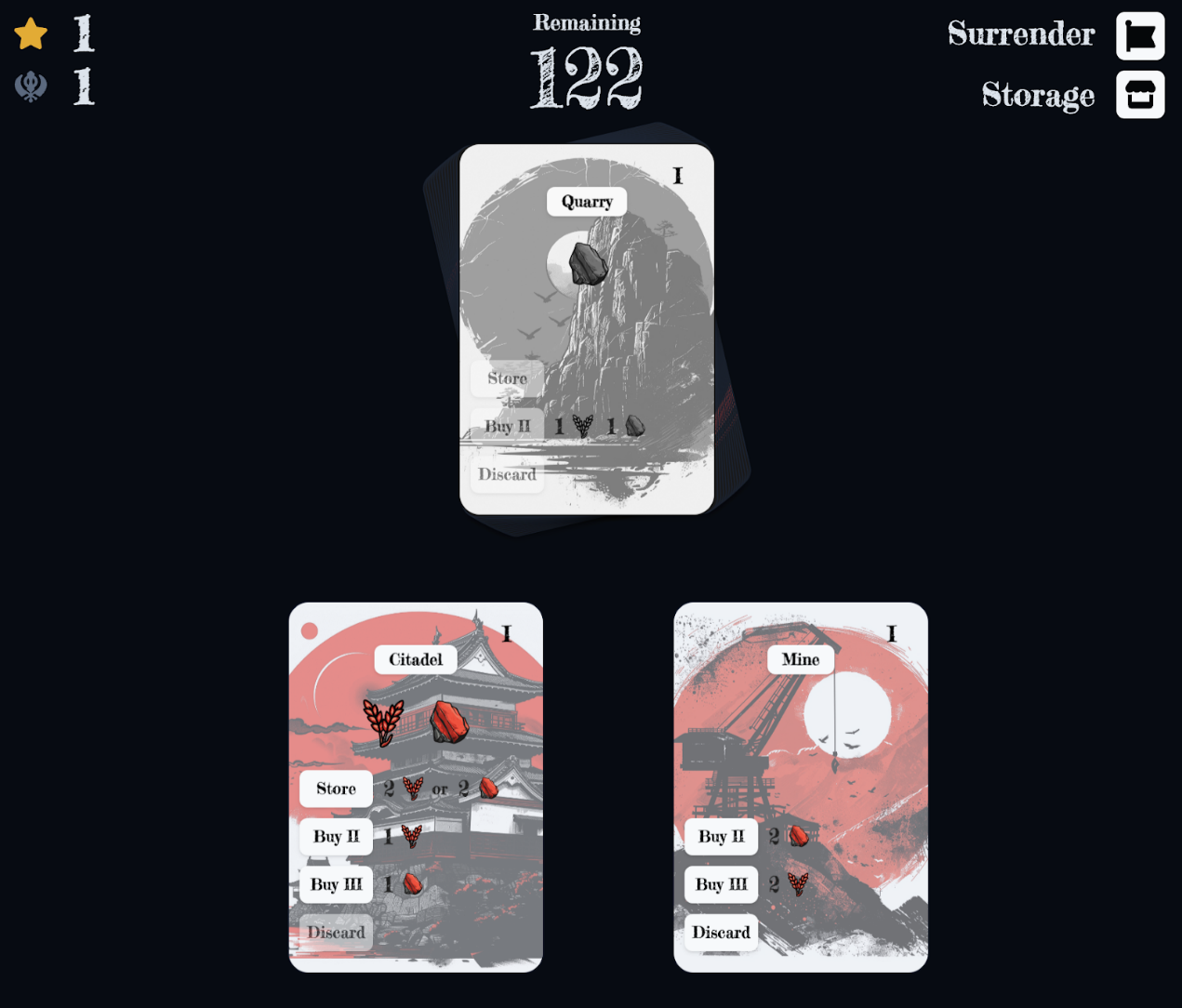Original article compiled by: Felix, PANews
ETHGlobal announced the finalists for StarkHack, with seven projects selected from over 150 projects submitted and built. Here鈥檚 a quick look at the seven projects.
Chain Monsters
Chain Monsters is a blockchain-based turn-based RPG action game where players can control monsters, engage in PvP battles, and move strategically on a 5 x 8 grid, attacking enemies to increase mana and reduce opponent health.
Chain Monsters wrote smart contracts in Cairo and developed them using the Dojo framework. React and dojo.js SDK were used on the client side to define on-chain interactions and the React application was deployed on Vercel.
Chain Monsters uses Cartridges slot solution to efficiently deploy contracts. This deployment is facilitated by the open source sorter (Katana) and indexer (Torii) in the Dojo ecosystem. Player interactions from the client are sent directly to the sorter, while client information updates are synchronized with the indexer.
Zap
Zap is a mobile email wallet that leverages SecureEnclave, Account Abstraction, and TLSN proofs to bring a Web2-like experience to Web3 users.
The application was developed in React-Native, allowing deployment on IOS and Android, and the smart wallet is located in Cairo. For this hackathon, Zap was deployed and tested on Katana, and for security, Zap created a custom signer using Starknet Js.
zkPages
ZkPages allows users to create single-page digital content storefronts powered by Starknet smart contracts. The platform emphasizes privacy and security through zero-knowledge checkout and traceless payments, and content is stored and delivered via IPFS. Users can easily manage their stores, upload content, and track their audit history, ensuring transparency and accountability.
Live demo URL: https://zkpages.vercel.app (Starknet Sepolia testnet)
Demo video (Youtube about 4 minutes): https://youtu.be/HO9kQjtSUjE
Solas
Solas is a proof system based on Starknet that allows users to create and sign proofs of any form using any type of data.
Solas uses Cairo lang, Starknet foundry, next js, vercel and starkscan. The project consists of two main cairo contracts, the startnet authentication service contract and the Schema Registry Contract.
StarkSwirl
StarkSwirl is a privacy-preserving token mixer that allows users to use the public chain Starknet and protect their privacy.
Backend technologies used:
-
Scarb: used to build contracts, manage dependencies, run tests, and execute Cairo programs
-
Lambdaworks: cairo -vm: Executes a Cairo program in a virtual machine to generate a trace that is then verified by Stone Prover
-
StarkWare:stone-prover: Generate proofs for traces generated by Cairo VM
-
Herodotus:cairo-lib: Verify MMR (Merkle Mountain Range) proofs in Cairo programs
Smart contract technology used:
-
Foundry: for declaring and deploying smart contracts
-
Scarb: responsible for building contracts and managing dependencies
-
Herodotus: cairo-lib: store the root of the MMR on-chain and append new commitments
-
Herodotus:integrity: Verify proofs generated by Stone Prover
ZK (Zero Knowledge) Technology Used:
-
StarkWare: stone-prover: responsible for tracking and generating proofs for the Cairo VM
Front-end technologies used:
-
Next.js: for building the front end
-
TypeScript, starknet.js, starknet-react: used to interact with smart contracts
-
TailwindCSS, Shadcn, Aceternity: used to set the front-end style
zKastle
zKastle is a single-player strategy card game inspired by Palm Island. In this game, players will control a village and help it grow and prosper by strategically managing resources and upgrading infrastructure. The players goal is to maximize points through tactical decisions and efficient resource management.
The project uses the Dojo framework, an open source toolchain for building verifiable games. The core game logic is implemented using Cairo, a programming language for writing smart contracts on Starknet. These contracts handle basic game mechanics, ensuring that all operations are performed securely on the blockchain.
The front-end is built using React and dojo.js sdk. Dojo.js complements React by providing tools and modules specific to the Dojo framework, facilitating seamless integration between the front-end and back-end smart contracts. Notably, the project uses the Torii indexer to efficiently manage and query game data.
512 Karat
512 Karat is a fully on-chain generative art ERC-721 project built using Dojo and Origami.
The project has been deployed to Sepolia and minting is now open at https://karat.collect-code.com/ or https://512karat.vercel.app/ .
Minting is free and there is a maximum supply of 512 tokens.
This article is sourced from the internet: ETHGlobal StarkHack Finals: 7 Finalists
I. Introduction In the internationally open large-scale cup competition system, international legal betting groups play an important role in formulating the rules of the game, which has a significant impact on the entire sports industry capital. For every major world event, such as the World Cup, betting companies give odds for all participating teams, and fans around the world will choose their own teams to bet on according to their preferences. [1] The odds setting involves very complex mathematical analysis and is the core of the entire competitive game. The odds are weighted and calculated based on a series of indicators such as the strength of the participating teams, the current status of the players, and the historical performance of the team, and are given subjectively by the bookmaker. The…










